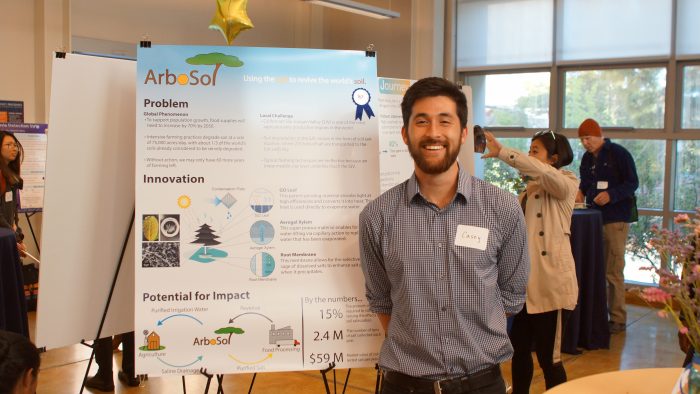
Current farming practices are degrading soil at a rate of 75,000 acres per day, with about a third of global soil considered severely degraded and the remaining projected to last only 60 years. By reducing agricultural productivity, soil degradation is responsible for a global annual economic loss of $27.3-billion. ArboSol addresses this problem locally–in California’s San Joaquin Valley (SJV)–where soil degradation is anticipated to cost California $3-billion in annual revenue and up to 64,000 jobs by 2030. ArboSol uses a novel sunlight-powered desalination to remove salts from saline agricultural drainage; producing a high-purity water that can be reused for irrigation. Through a leasing model, ArboSol will partner with corporations operating in the SJV to collect salts for resale. By implementing ArboSol on a large scale (15% of agricultural fields in the SJV), the effects of soil salinization can be reversed, while producing $59-million worth of salt each year.

